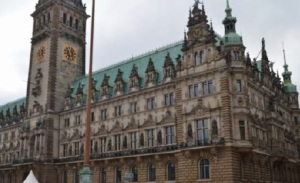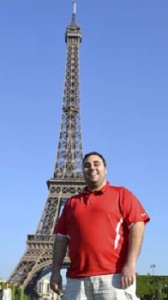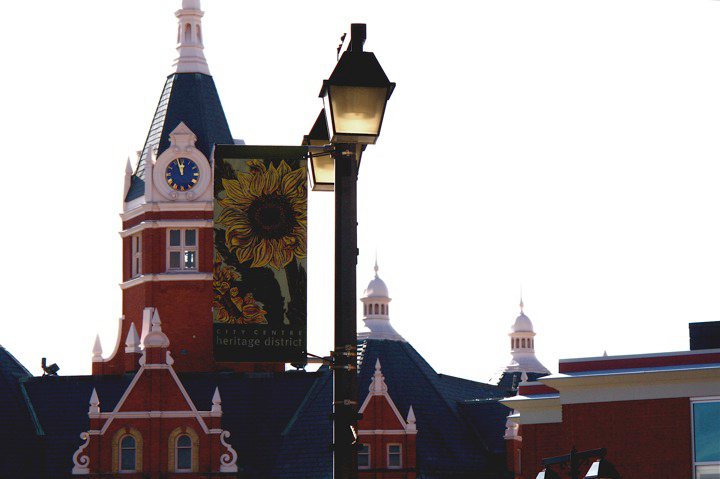 “One saying I learned that I will never forget is ‘traveling is not for the rich but for the bold.’ As I live here in the United States, I will live what I learned; I will teach what I learned; and most importantly, I will share what I learned.”
“One saying I learned that I will never forget is ‘traveling is not for the rich but for the bold.’ As I live here in the United States, I will live what I learned; I will teach what I learned; and most importantly, I will share what I learned.”
Alexander spent nearly a year searching for an off-campus study location at universities around the world, but had no luck. Just as he was about to give up and stay at UM-Flint, Dr. Thum approached him with an amazing opportunity. “How would you like to go to Germany for the summer?” His answer was an immediate “Yes!”
For over two months, Alexander worked in Dr. Thorsten Benter’s Physical and Analytical Chemistry Laboratory at Bergische Universitat Wuppertal in Wuppertal, Germany. During this trip, he had his first experience with culture shock. “Although I knew conversational German, it was not on the level of native fluency. The first day there I was physically and mentally exhausted! Everything around me looked like America, but it was not America!”
The first day in the lab was nothing like Alexander or his lab partner, another Honors student, had expected. They had both taken a class on proper German etiquette before leaving, but it failed to take into account the unique personality of their professor. When they politely addressed him as “Professor Dr. Benter,” he laughed and said, “Who is that? I am Thorsten!” Having been exposed to the casual style of the University of California, Irvine, he preferred it over the formality of Germany.
 Dr. Benter and his research group made Alexander’s experience unforgettable. He noticed that people loved working for Dr. Benter and that everyone functioned as one cohesive unit. His assigned project was based on physical and analytical chemistry, two courses that Alexander had yet to take. He and his partner spent the first week taking a crash course in chemistry, reading scientific papers and asking questions. “Professor Benter sat with us the entire week and explained everything at the most basic level and worked his way up. I learned more in that week than I would in one semester of chemistry classes.” Alexander was assigned to Professor Hendrick Kersten’s project to develop, test, and calibrate an analytical and sensitive method to detect explosives, narcotics, etc. in the air, which would then be integrated into a product to be used in airports, schools, and medical offices around the world. His specific task was to test various chemicals and create calibration curves for each chemical. Although Alexander plans to attend medical school, what he learned can also be used in medical biotechnology. “I was in love with the whole process and task. In fact, I loved it so much that the professor noticed and asked me to stay longer.”
Dr. Benter and his research group made Alexander’s experience unforgettable. He noticed that people loved working for Dr. Benter and that everyone functioned as one cohesive unit. His assigned project was based on physical and analytical chemistry, two courses that Alexander had yet to take. He and his partner spent the first week taking a crash course in chemistry, reading scientific papers and asking questions. “Professor Benter sat with us the entire week and explained everything at the most basic level and worked his way up. I learned more in that week than I would in one semester of chemistry classes.” Alexander was assigned to Professor Hendrick Kersten’s project to develop, test, and calibrate an analytical and sensitive method to detect explosives, narcotics, etc. in the air, which would then be integrated into a product to be used in airports, schools, and medical offices around the world. His specific task was to test various chemicals and create calibration curves for each chemical. Although Alexander plans to attend medical school, what he learned can also be used in medical biotechnology. “I was in love with the whole process and task. In fact, I loved it so much that the professor noticed and asked me to stay longer.”
Studying and research were not the only things he did during his stay. He traveled to over 20 cities in Germany along with Paris, Rome, Vatican City, Amsterdam, and Belgium. “Rome was the most beautiful city I have ever seen. The history you experience as you walk up and down a block is astounding!”
Alexander has received a job offer from Dr. Benter for next summer and looks forward to working in his lab again.
